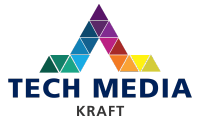Nowadays AI tools such as ChatGPT, Copilot, and Code Whisperer are transforming how we create computer code. These advanced AI systems comprehend code much like they understand human language, pushing the boundaries of automation and code generation further than ever before.
While automation in coding isn’t new, AI’s capabilities suggest a future where much of the coding process could be automated.
However, this does not mean that developers will become outdated. Human inventiveness and problem-solving abilities are important. AI is ready to boost productivity, streamline workflows, and provide superior solutions, emphasizing the value of human knowledge.
Here’s a detailed look at how the role of programmers and software engineers is set to evolve with the increasing integration of AI tools in their daily activities.
Automated Code Generation
Repetitive tasks such as creating documentation, refactoring existing code, standardizing code structures, and refactoring code consume a significant amount of a software engineer’s time. Generative AI can handle these tasks efficiently, generating code for simple operations like sorting lists and processing API data in mere seconds.
This capability dramatically reduces the time spent on routine but essential tasks, allowing developers to focus on more complex and creative aspects of software development.
Faster Testing and Debugging
Testing and debugging are critical phases in software development. Generative AI tools like GitHub Copilot, OpenAI Codex, and AWS CodeWhisperer excel in automating test case creation and bug identification.
These tools can significantly shorten development cycles and enhance the reliability and trustworthiness of software. By automating the testing process, developers can identify and resolve issues faster, leading to more robust software products.
Coding Generative AI Applications
Generative AI opens new avenues for developing applications that offer highly personalized and customized experiences. For instance, software tools tailored for professionals such as doctors, lawyers, artists, and designers can become more powerful, flexible, and user-friendly.
Developers with machine learning expertise will play a crucial role in fine-tuning and customizing generative AI models to meet the specific needs of various industries and niche applications.
The Evolving Role of Software Engineers
As AI tools become more prevalent, the role of software engineers will undergo significant changes. Rather than focusing solely on writing code, engineers will increasingly take on roles that involve supervising AI-generated code and strategizing its application.
They will need to acquire new skills, such as prompt engineering to effectively use AI technologies, and will be responsible for evaluating the quality of machine-generated code and determining when human intervention is necessary.
Understanding AI ethics, security, and compliance will become essential aspects of their role.
This transformation will demand new skills and traits from developers. However, if embraced correctly, it will make them even more valuable to their organizations. By leveraging AI, software engineers can become more efficient and innovative, driving forward the capabilities of their teams and the quality of their projects.
Key Takeaways for Optimizing AI in Software Development
- Embrace Automation: Utilize AI tools for repetitive tasks to free up time for more strategic and creative work.
- Enhance Testing Processes: Implement AI-driven testing and debugging to improve software reliability and reduce development cycles.
- Focus on Customization: Develop applications that leverage AI for personalized user experiences, catering to specific professional needs.
- Adapt to New Roles: Prepare for a shift in responsibilities, emphasizing supervision, strategy, and ethics in AI usage.
- Continuous Learning: Stay updated with AI advancements and continuously acquire new skills to remain relevant in the evolving tech landscape.
Integrating AI tools like ChatGPT, Copilot, and Code Whisperer into their workflows, developers and software engineers can increase their productivity. They can also contribute to creating more sophisticated and reliable software.
The future of coding is a perfect combination of human intellect and AI efficiency, where each complements the other to produce extraordinary outcomes.
Conclusion
AI tools are not here to replace developers but to augment their capabilities. By automating mundane tasks, speeding up testing and debugging, and enabling the creation of highly customized applications, AI is set to revolutionize software development.
As the role of software engineers evolves, their value will only increase as they adapt to new technologies and methodologies. Embracing these changes will lead to more efficient, innovative, and successful tech projects.
Embrace the future of software development with AI, and unlock the potential of combining human creativity with advanced technology.

